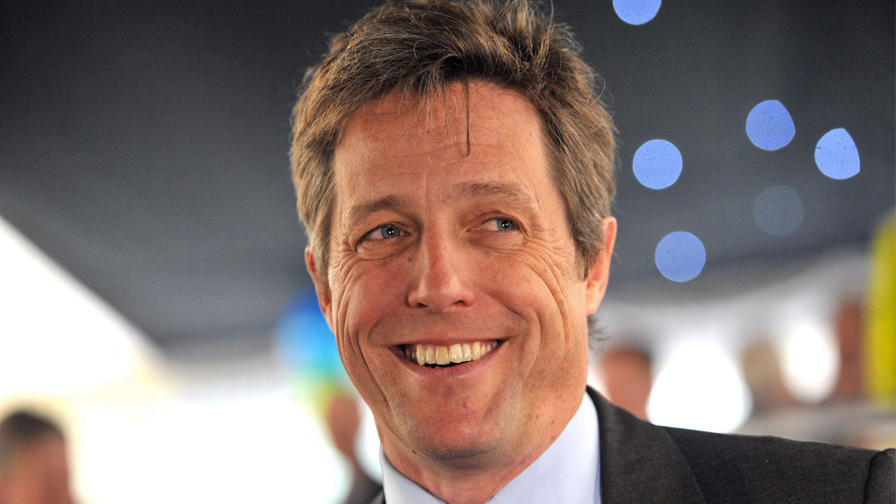


Hugh is one of Britain's best known actors and a world-renowned talent; he has a particular penchant for playing comedic roles. Hallmarks of his comic skills include a nonchalant touch of irony/sarcasm and studied physical mannerisms as well as his precisely-timed dialogue delivery and facial expressions. He is also globally recognised for his well-spoken English accent, which he insists is an inheritance from his mother and, on Inside the Actors Studio in 2002, he credited her with "any acting genes that [he] might have." Hugh has received a Golden Globe Award, a BAFTA, and an Honorary César. His films have earned more than $2.4 billion from 25 theatrical releases worldwide. After making his debut as Hughie Grant in the Oxford-financed Privileged (1982), Grant dabbled in a variety of jobs: he wrote book reviews, worked as assistant groundsman at Fulham Football Club, tried his hand at tutoring, wrote comedy sketches for TV shows, and was hired by Talkback Productions to write and produce radio commercials for products such as Mighty White bread and Red Stripe lager. His first leading role came in Merchant-Ivory's 1987 Edwardian drama, Maurice, adapted from E.M. Forster's novel of the same name, in which he played the homosexual Clive Durham. In 1992, he appeared in Roman Polanski's film Bitter Moon, portraying a fastidious and proper British tourist who is married, but finds himself enticed by the sexual hedonism of a seductive French woman and her embittered, paraplegic American husband. At 32, Grant claimed to be on the brink of giving up the acting profession but was surprised by the script of Four Weddings and a Funeral (FWAAF). Released in 1994, FWAAF became the highest-grossing British film to date with a worldwide box office in excess of $244 million, making Grant an overnight international star. The film was nominated for two Academy Awards, and among numerous awards won by its cast and crew, it earned Grant his first and only Golden Globe Award for Best Actor - Motion Picture Musical or Comedy and a BAFTA Award for Best Actor in a Leading Role. After a three year hiatus, in 1999 he paired with Julia Roberts in Notting Hill, which was brought to theatres by much of the same team that was responsible for FWAAF. This new Working Title production displaced FWAAF as the biggest British hit in the history of cinema, with earnings equalling $363 million worldwide. As it became exemplary of modern romantic comedies in mainstream culture, the film was also received well by critics. Another of Grant's most successful roles was as notorious womaniser Daniel Cleaver in Bridget Jones Diary. The film, adapted from Helen Fielding's novel of the same name, was an international hit, earning $281 million worldwide. Grant was also paired with Sandra Bullock in Warner Bros.'s Two Weeks Notice, which made $199 million internationally. This was followed by the 2003 ensemble comedy, Love Actually, headlined by Grant as the British Prime Minister. A Christmas release by Working Title Films, the film was promoted as "the ultimate romantic comedy" and accumulated $246 million at the international box office. It marked the directorial debut of Richard Curtis, who told the New York Times that Grant adamantly tempered the characterisation of the role to make his character more authoritative and less haplessly charming than earlier Curtis incarnations. Grant is a Patron of The DIPEx Charity, founded by the late Ann McPherson, a charity that publishes the websites Healthtalkonline and Youthhealthtalk; and a Patron of the Fynvola Foundation, named after his late mother, a charity which provides nursing and care for older learning-disabled people. He is also a supporter of Marie Curie Cancer Care, whose Great Daffodil Appeal he promoted in March 2008. Hugh is a charismatic and articulate brand ambassador.